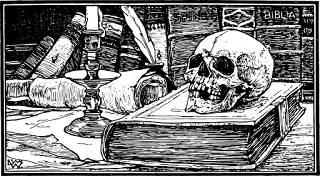Términos relacionados con los libros
Tejuelo: Cuadro de papel o piel que se adhiere al lomo del libro a modo de etiqueta para indicar el título, autor o signatura. Su función es la de identificar rápidamente la obra sin necesidad de extraerla del estante o abrirla.
Intonso: Es el ejemplar de una edición al que no le han sido cortadas las uniones de sus hojas que conformaban el pliego situadas en los cortes. Los libros intonsos adquieren por su escasez un grado de rareza que los hace más apetecibles para algunos bibliófilos ya que mantiene sus márgenes completos. El vocablo proviene del latín intonsus, ‘sin cortar’, y antiguamente hacía referencia al cabello o barba que estaba sin cortar.
Colofón: Anotación manuscrita situada al final del libro, dedicada a dar información acerca de las circunstancias en las que fue producido, como el lugar de impresión o copia, nombre del impresor o copista, fecha, etc. El término proviene del latín tardío colophon y este del griego kolophṓn, que hacía referencia a una cumbre o cima.











